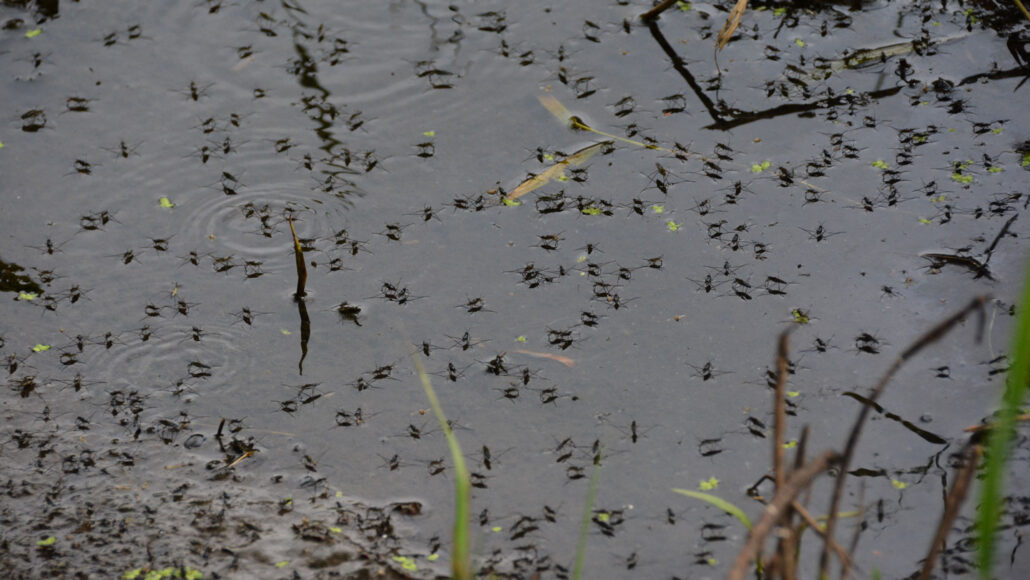Excerpt from the December 18, 1971 issue of Science News

Disease-spreading mosquitoes thrive in wet environments. Fifty years ago, scientists sought a new way to wipe out the pests: genetic engineering.
ESTHER KOK / EYEEM/GETTY IMAGES PLUS
By Maria Temming
DECEMBER 18, 2021 AT 8:00 AM

Sterility gene for mosquito control — Science News, December 18, 1971
Scientists are working hard to find a substitute for DDT in the control of malaria vector mosquitoes.… Two experiments with mosquitoes breeding in old tires in New Delhi point to an answer: a gene for sterility that would be passed to offspring.
Update
Today, scientists are testing a variety of pesticide-free ways to control mosquito populations that spread malaria, Zika, dengue and yellow fever. One approach involves infecting male bloodsuckers with a strain of Wolbachia bacteria (SN: 6/10/17, p. 10). When the infected males mate with females, their offspring die before hatching. Another method tweaks mosquito DNA so that males pass on a daughter-killing trait and all female offspring die, shrinking populations over time. The mosquitoes, bred by the England-based biotech company Oxitec, took their first U.S. flight in May following a years-long debate about the safety of such organisms.
No comments:
Post a Comment